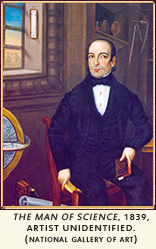
Learn more at the Bedford Historical Society. |
Bedford
Thoreau had, at this point, read and written approvingly of Darwin, but his chronicle of the apple-tree's heroic struggle to survive—and the delightful forms it took when left to its own devices—suggests that what has been called the empirical turn in his later writings did not signal a conversion into what the nineteenth-century described as 'a man of science.' Instead, in narrating the apple tree's valiant resistance to its enemies and the enterprising methods it used to insinuate itself across the country, Thoreau was not so much anthropomorphizing evolution as he was implying that our direct experience of natural phenomena informs our understanding, which includes but is not limited to facts alone. In his Journal in 1851, he asserted along this lines: "Science does not embody all that men know, only what is for men of science. The woodman tells me how he caught trout in a box trap, how he made his trough for maple sap of pine logs, and the spouts of sumach or white ash, which have a large pith. He can relate his facts to human life... The knowledge of an unlearned man is living and luxuriant like a forest, but covered with mosses and lichens and for the most part inaccessible and going to waste; the knowledge of the man of science is like timber collected in yards for public works, which still supports a green sprout here and there, but even this is liable to dry rot." |


 Thoreau delivered his lecture on "
Thoreau delivered his lecture on "





